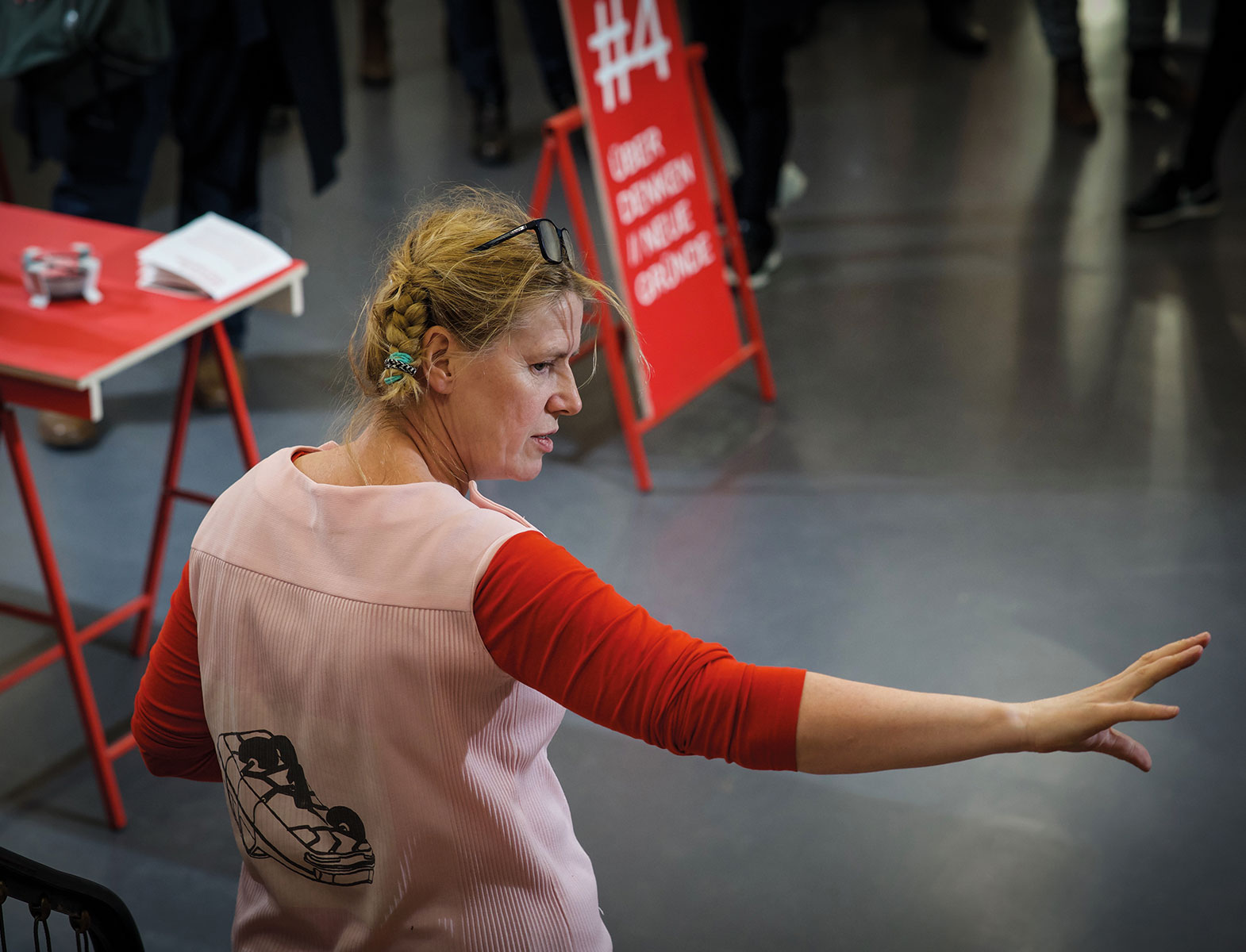Your Design & Social Context projects aim to increase collaboration between the applied arts and cultural, industry and tech partners such as research labs. How is this relevant to research on climate change?
As product designers, our work brings with it a lot of responsibility in terms of production (or overproduction), consumption, sustainability and climate change. We need to think about how exactly we are applying our problem-solving skills and experiences from production; we must position ourselves actively and strategically; and we need to work more effectively with manufacturers, policymakers and researchers. I’m not particularly interested in only designing products. What’s important is not just the design or the person creating the design, it’s also about whether the end-products are useful for society and the impact they have.
The Bauhaus era focused on new technologies, such as bending steel to create a new kind of furniture design. It is exciting to see how nowadays applied arts are being interpreted and implemented quite differently. New materials and technologies offer good alternatives and can lead to sustainable innovations. There are also many exciting developments coming out of research labs that my students can use for new, smart and sustainable applications that fit with our changing behaviors and daily lives. But ultimately, we have to remain critical at all times, and ask ourselves: Do we REALLY need this?
What are some current projects where you are working with your students on design and climate change?
I try to teach my students how to design high quality and useful products. In my own training in the Netherlands, I learned to always be critical and to question everything. It is important to understand the context within which and for which you are designing, and to have an awareness of social issues, innovations and historical references. In my classes, we discuss these issues, but students are also encouraged to take a deep dive into the research contexts themselves and to develop their own ideas.
In the coming 2021/22 winter semester, we are working on the project SUPERMARKET OF THE FUTURE, which will ask how we can approach packaging differently and develop reusable systems. For example, what if you could remove the water content from all supermarket products? Potentially, you could significantly reduce not only the physical volume of the supermarket, but also the transport volume. In this supermarket project, we are working with economic strategists, and again, my students are encouraged to think about new strategies of their own and to communicate these.
What opportunities and challenges will art and design face in the future with regard to environmental and climate issues in the Berlin/Brandenburg region?
Obviously, many climate change issues extend beyond Berlin and Brandenburg. So it’s important to think outside of our own contexts. We are running out of time to change things, so rather than everyone looking at the same questions separately, the goal should be to share our experiences.
The interview was conducted in October 2021.
Picture: privat


